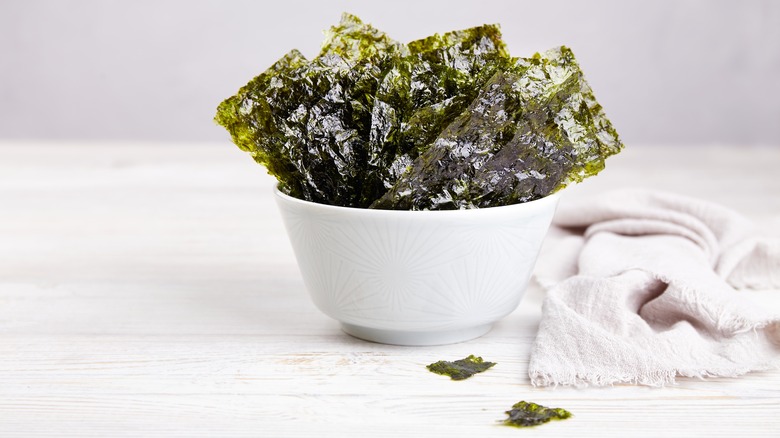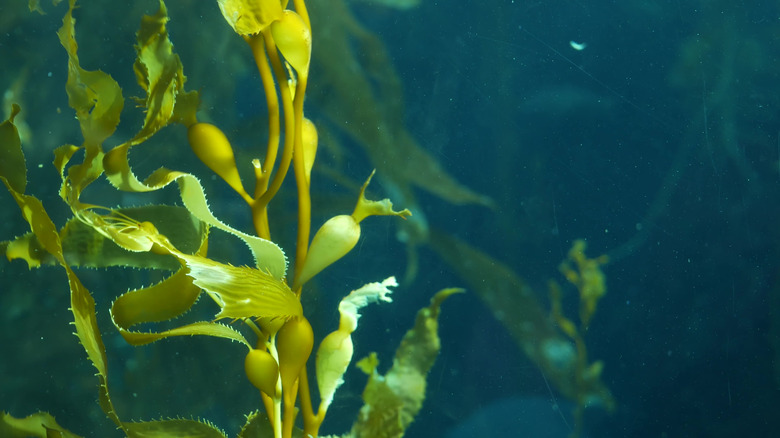Seaweed Is The Underrated Superfood You Should Be Eating More Of
Nori rolls aside, seaweed isn't typically seen as a staple of the standard American diet. That seems to be changing, according to Report Linker. Probably in part due to more and more products like nori chips and gomasio popping up on store shelves, as well as forward-thinking chefs recognizing the umami and nutritional value it offers to any dish.
Seaweed is a type of algae that grows in the ocean. Another way to think of it is just a plant or vegetable of the sea. Seaweed has been around for thousands of years and is used for both culinary and health purposes in coastal areas. It's finally on the cusp of having its time in the mainstream spotlight, and we will all reap the benefits from that.
There are several varieties of edible seaweed, and they all offer a whole host of advantages. Turns out seaweed is less pesky weed and more superfood (via MasterClass).
Good for the plate and planet
From a nutrition standpoint, seaweed is a powerhouse. Per Forbes Health, it is high in fiber and abundant in vitamins and minerals, including vitamins A, D, and B12, and is higher in minerals than land vegetables. It may aid with blood sugar regulation by controlling postprandial spikes and contains the Omega-3 EPA, which can raise good cholesterol. Many of the varieties of edible seaweed are anti-inflammatory and antimicrobial, and there is evidence that ancient Egyptians and Romans used them medicinally. Some varieties do contain anti-cancer elements (via NOAA). There was also evidence published in Marine Life in 2019 that seaweeds are a rich source of prebiotics and support gut health.
From a sustainability standpoint, according to the Ellen MacArthur Foundation, seaweed has a place in regenerative agriculture. It aids in reducing harmful ocean acidification, provides shelter for marine life, and absorbs carbon and nitrogen, which contribute to climate change. Benefits both us and the planet? Sounds like a win-win.

